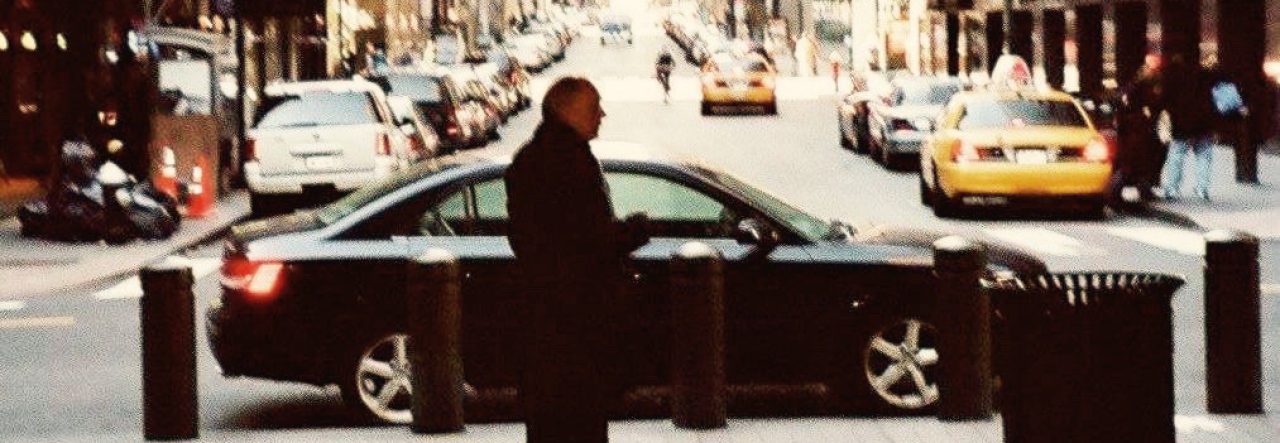Read out at the memorial service after the Stenhammer Quartet had played the slow movement from Anders Eliasson’s Quartetto d’archi
By John-Edward Kelly (1958–2015)
My Friend and Musical Brother, Anders Eliasson
Beloved Anders, you have taken that fateful step to the other side, to the source of all life and music, to the true home you have spoken of for so long. You know only too well how much I miss you already, how deeply I have loved you and your magical music since our first unforgettable meeting in 1984.
Indeed, in a lifetime of music-making, there has been no-one with whom I have shared so many musical and artistic values, with whom it was possible to have such invigorating exchanges about life and music, with whom I was so at home aesthetically, artistically and philosophically. Our very first conversation lasted over 12 hours, concluding at the pizzeria around the corner where we discussed folk-music, rhythm and melodic architecture until the manager finally turned off the lights and ushered us out. The evening wasn’t over, however, as I was treated to some of the most deeply-moving music I had ever heard: Turnings, the First Symphony, Canto del Vagabondo. In a few short hours, you had won a devoted proponent of your music and a lifelong friend. Indeed, there has not been a day in the past 29 years that you and your music were not front-and-center in my life, and I cannot thank you enough for the great joys and profound human enrichment you have given.
There have been SO many memorable moments with you and your music that it is impossible to summarize them. I have seen your eyes well up with tears upon hearing a beautifully-played phrase, and I have found tears streaming down my cheeks while playing your music. We have shaken our heads together at the appalling lack of humanity in our time, and I have marvelled at your initiating a real conversation with a beggar in a subway station; “Any of us can be in that situation in a heartbeat”, you told me. I have seen you read a new score by a colleague, carried away by music that was not your own, and I saw you composing at your desk – privileged to see you at work in a realm far away from everyday life, transported to a place where you were obviously much more at home than down here below. I saw you refuse to acknowledge applause for a disinterested performance of your music, and I felt your warm embrace on stage as you whispered only the words “thank you”. I have seen you dance joyously across a Norwegian meadow, and I stood in awe at your tremendous courage in the face of an insurmountable illness.
Musicians who played for you realized very quickly that you knew and heard every detail of your compositions. To know your music is to know you, Anders, and reading one of your scores is like viewing a page of your life – even if you were allergic to the term “my music”. (“It isn’t MY music! Do you think I could ever do this myself?) I shall always remember and treasure your comment, “I don’t actually compose, you know; I only take dictation. I’m really just a secretary!” An unforgettable moment for me was walking to a restaurant with you down a narrow cobblestone sidewalk in Gamla Stan, when all of a sudden you declared from behind me: “John-Edward! I’m going to write you a concerto!” The rest of the evening you whistled again and again a curious little motif in descending thirds… Some three years later I recognized that same motif again: as the kernel of the central movement of your magnificent Third Symphony! You have said on several occasions that you “would be fine with only two books: the Bible and Bach”. “Any Bach?”, I asked, and you replied: “Kunst der Fuge would be good … or maybe the h-Moll Messe”.
Over the years, a few people who were familiar with the extraordinary musical qualities and great human depth of your music have stated that you were among the greatest Swedish composers of all time. After many hundreds of performances of your music; thousands of hours spent dwelling upon your scores; and witnessing firsthand the reactions of a few outstanding composers first encountering your music, I feel completely justified in going a step further: in due course, history will properly place you in the great musical line that includes Palestrina, Bach, Mozart, Schubert and Brahms. Indeed, one of the hallmarks of great music is whether it can hold its own with the established masterworks on a concert program. I know from experience that your music blossoms in the company of the greatest musical creations of history.
And so, my dear friend, it is my turn to say “thank you” for a life well lived, for the depth of humanity you have shown to those willing to see it, for a musical world so rich and rewarding that it will carry those left behind for generations to come.
Farewell, my dear friend; you will do very well back at home.
– John-Edward Kelly, June 2013
